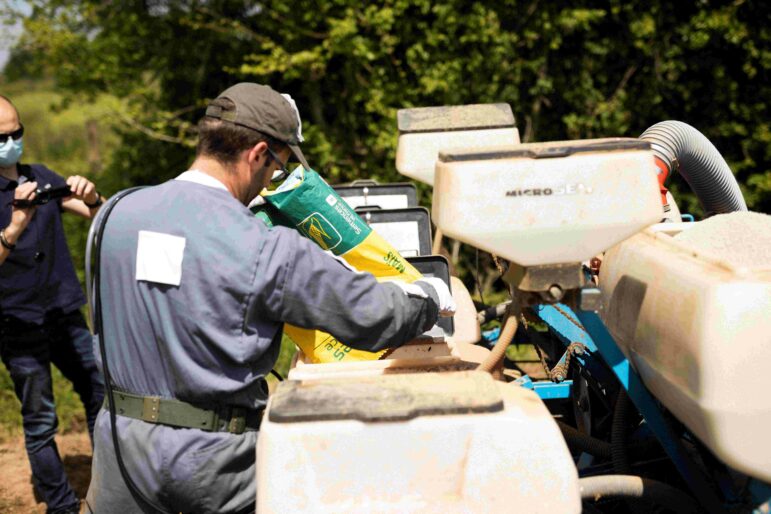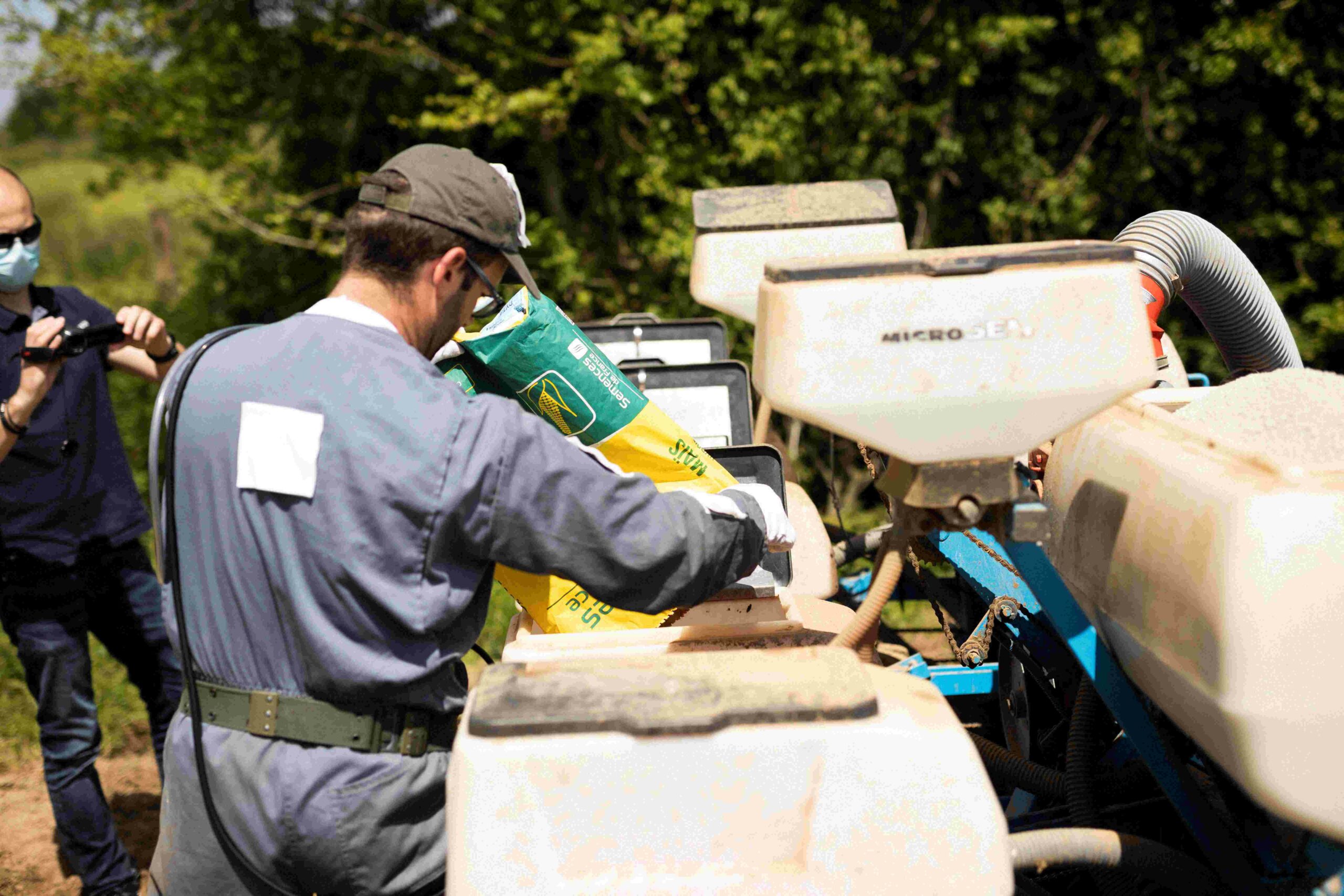
Swedish trade unionists are appalled to learn that Parkinson’s disease has a strong linkage to working with pesticides. But there is no data to shed light on the situation in Sweden.
Cyril Waern, ombudsman for working environment at LO, the Swedish Trade Union Confederation says it’s shocking to hear French authorities define Parkinson’s disease as an occupational disease.
To her, to other trade unionists and to Swedish authorities, this is unchartered territory.
Anja Westberg at the trade union Kommunal’s green sector which organises gardeners and park workers, says she hasn’t heard of injuries or illnesses connected to work with pesticides.
”I have been working with occupational health for 40 years, this is news to me,” she says.
The unknown news to the Swedes does not only concern rules and regulations in France and Italy. The fact that scientists have establish a ” strong link” between the working environment for farmers, farmworkers and Parkinson’s disease as well as to prostate cancer and other severe health consequences are generally not known in Scandinavia.
These finding were documented for a second time 2021 in a study by the French institute INSERM compiling and summarizing 5 300 different scientific studies and reports. A first INSERM report was issued in 2013.The French conclusions are echoed by Bas Bloem,a professor in neurology at Radbound university in the Netherland, and a world leading expert on Parkinson’s disease.
Bloms explains the linkage between working environment and Parkinson’s disease by pointing to the fact that pesticides reduce the number of cells producing dopamine, a chemical transmitter of signals in the brain.
”There’s a big time lap between being exposed to pesticides and when the disease develops. We see now that Parkinson’s disease is one of the illnesses that increases globally, also when we compensate for the general effects of ageing populations, “ he says.
Three cases in six years
This trend and its connection to working conditions cannot be traced in the Swedish health statistics. Arbetsmiljöverket (Swedish Work Environment Authority) has only noted three registered cases of compensations for diseases caused by pesticides since 2016. For none of them was the concrete disease recorded. Nor Parkinsonsförbundet, a patient association, neither Swemodis (Swedish Movement Disorder Society) have any knowledge of how Parkinson’s disease relates to occupational hazards.
An illustrative example is given by Peter Lundqvist, a professor in Work Science at the Agricultural University SLU (Sveriges Lantbruksuniversitet).
Several actors refer to Lundquist as a central source on environmental and health issues related to agricultural works. He himself regrets having very little knowledge to offer about the occupational impacts of pesticides:
”Yes, I have heard about these correlations, but they have not been followed up in Sweden. Previous research came to a dead end. And I’m not surprised to hear about the of lack of EU-coordination. This is very likely big grey area of unreported cases,” Lundqvist says.
The lack of overview and knowledge is not just a Swedish issue. The European Agency for Safety and Health at work (EU-OSHA) cannot provide information on a European level, like compiled data on national legislation and or standards for compensations.
”At the moment, not even basic statistics are comparable across member countries,” EU-OSHA’s press office said in a mail.
Eurostat, the EU’s office of statistics has created an experimental database on occupational diseases, but not all member countries deliver data to the data base. It mostly illustrates the different national approaches to registration and compensation and the difficulties in comparing data between them.
There is though one existing tool in the EU-toolbox on occupational diseases. The Commission issues recommendations to member states for what hazards and substances they should compensate workers. Parkinson’s disease related to pesticides does not appear on this list of recommended actions. There is ”no clear scientific evidence about the occupational origin of Parkinson’s disease ”, the European Parliament was told in 2017.
This is still the Commission’s position, spokesperson Veerly Nuyts, stated in a written reply five years later.
The non-protecting protection equipment
Another finding by the extensive French studies is that protection equipment such as gloves, coveralls and face masks do not protect as claimed.
Alain Garrigou, a professor of ergonomics at the University of Bordeaux found that pesticides, designed to pass through cell membrane in plants and animals, also pass plastic and textiles at the intramolecular level – a mechanism called permeation.
”There is no such thing as dedicated pesticide protection clothing, ” Garrigou concludes.
The French scientist notified French and European authorities of these observations already back in 2007. Still the European Food and Safety Authority (EFSA) has not taken these findings into account in its guidance to users of authorized pesticides.
”The EFSA Guidance [to users of pesticides] is based on well-conducted and validated experimental data (…) it is acknowledged that there is a high public concern about exposure to pesticides”, EFSA explained in an email.
The pesticide producers have also been made aware of the French findings. Their organization CropLife Europe (formerly known as European Crop Protection Association, ECPA) declared in 2019 that the French scientists have taken an emotional stance, overstating at the best and misleading at the worst.
CropLine Europe declined an interview but said in a written statement:
”We did not feel that they presented a balanced view, exaggerated the health risks for operators and over-emphasised reliance on assigned protections factors in the registration of pesticide products.”
Safe use is a fiction
Summarising decades of French studies and findings sociologist Jean-Noel Jouzel, director of research at the French National Centre for Scientific Research CNRS wrote the book ”Pesticides: How to Ignore What We Know”. He now says the safe use of pesticides is pure fiction.
The EU agency EFSA was asked if they would comment on Jouzel’s claim but came back with a two-letter-word:
”No.”
Without knowing of the French studies and conclusions, Cyril Waern ombudsman for working environment at the Swedish trade union confederation has taken part in discussions about occupational health at an EU-level:
”We have tried to discuss pesticides, but some countries just do not want EU to interfere in that area, and the burden of proof is difficult. This depends very much on the persons in the Commissions advisory committee on health work, of the resistance from Business Europe [an umbrella organisation for industry and employers] and from others.”
”The chemical agency ECHA has a health perspective but does not look at the working environment. Every country has its own rules. We have very good laws in Sweden but recruiting companies don’t necessarily follow them. And for farm workers in the south of Europe, there at really slave like conditions,” Cyril Waern says.
